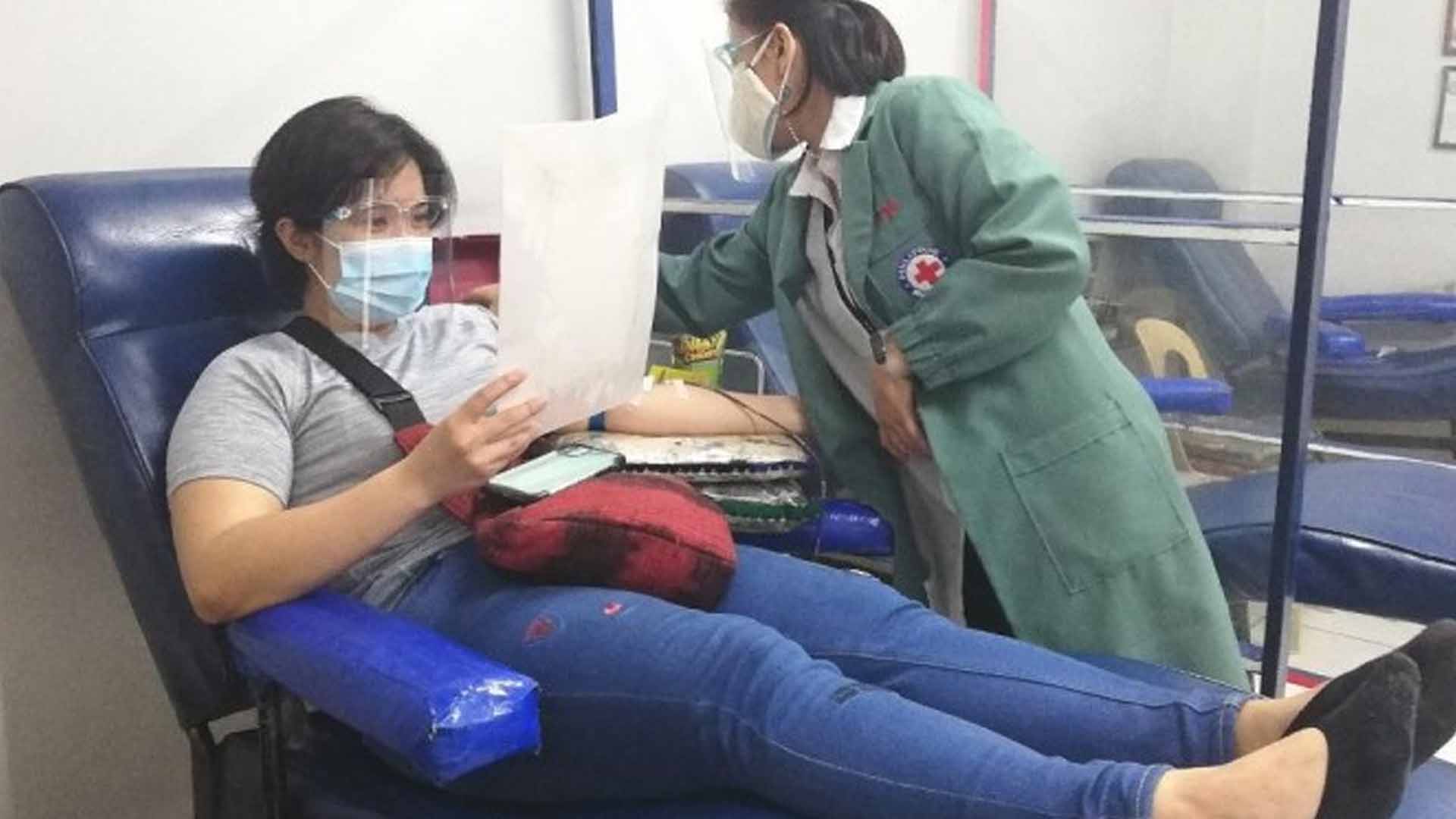More people are now realizing that donating blood does not only help recipients but also offers quite a few health benefits for the donor.
Among the people who have known this all along are media practitioners Jamie Joie Malingan, 26, of the Philippine Information Agency-Cordillera who has been donating 450 cubic centimeters (cc) of blood every three months since May 2021, and Jonathan Munar, 50, a reporter of Radyo Pilipinas who has donated 45 times already in the last 14 years.
Malingan said it was her way of giving back after her grandparent benefited from blood donation.
“Matagal ko ng gustong magbigay kasi bago namatay ang grandparent ko, nakahingi kami sa Red Cross (I have long wanted to give blood because we were able to get blood from the Red Cross when my grandparent needed one before passing away),” Malingan said.
The very first time she donated in 2021 was when a co-worker asked for donors of B+ blood type, the same as hers, for an emergency.
“Buti na lang natanong ako, nakapagbigay ako, nalaman ko paano kasi talagang gusto ko ng magbigay ng dugo (It was good that I was asked and I donated my blood, something I have been wanting to do),” Malingan said.
By donating blood, she said she not only helps others but also stays healthier as it allows her body to produce new blood cells, with studies even linking it to lower blood pressure and lower risk for heart attack.
For his part, Munar logged his 45th time donating blood last June 14 in celebration of World Blood Donors Day.
He, however, said that he started donating in college as a cadet of the Reserve Officer Training Corps (ROTC).
During mass blood donation activities, students, especially ROTC and National Service Training Program (NSTP) students are usually encouraged to donate blood by inculcating in them the value of volunteerism, giving, and helping save lives thru a precious resource that cannot be manufactured.
Dr. Bernard Demot, infectious disease specialist at the Baguio General Hospital and Medical Center, a Department of Health-run hospital, in a press conference on Thursday encouraged qualified blood donors to continue doing their good deeds.
He said blood transfusion benefit people suffering from leukemia, those who undergo surgery, and those having dialysis treatment, among others.
Especially during the rainy season, blood is a sought-after resource by patients who are suffering from severe dengue fever.
The World Health Organization has set the world blood donor day every June 14 to inculcate the value of voluntary blood donation to assure a safe blood supply for all those in need.
Kristine Gale Raguindin, Nurse III at the Baguio General Hospital and Medical Center, said about 1 percent of the region’s population donates blood.
Records show that in 2016, 1.40 percent of the population donated blood; 1.30 percent in 2017; 1.62 percent in 2018; 1.18 percent in 2019; 1.56 percent in 2020, and 1.49 percent in 2021.
“Cordillerans readily give their blood, especially when needed by a loved one. There are also several who walk in and give their blood every three months,” said Raguindin.
Free blood
Philippine Red Cross-Baguio administrator Annie Tamayo said the blood that people get from Red Cross is free.
“It is given to us for free and we give it out for free,” she said.
All the patient has to pay is the fee for screening, which ensures the blood is free of transmissible diseases or any impurities that may cause further harm to the recipient.
“We do not release unchecked blood. This is part of the quality control that we are mandated to do to assure a safe blood supply,” Tamayo said.
Tamayo said the Red Cross keeps a list of both walk-in and regular blood donors.
“Hindi tayo nauubusan ng dugo kapag nagbibigay tayo (Our body does not run out of blood when we give some),” she said, adding that the bone marrow produces clean blood each time we donate, making the body healthier.
A donor is also assessed for his health condition and must fill out a checklist of information which is a safety requirement for the donor. (PNA)








